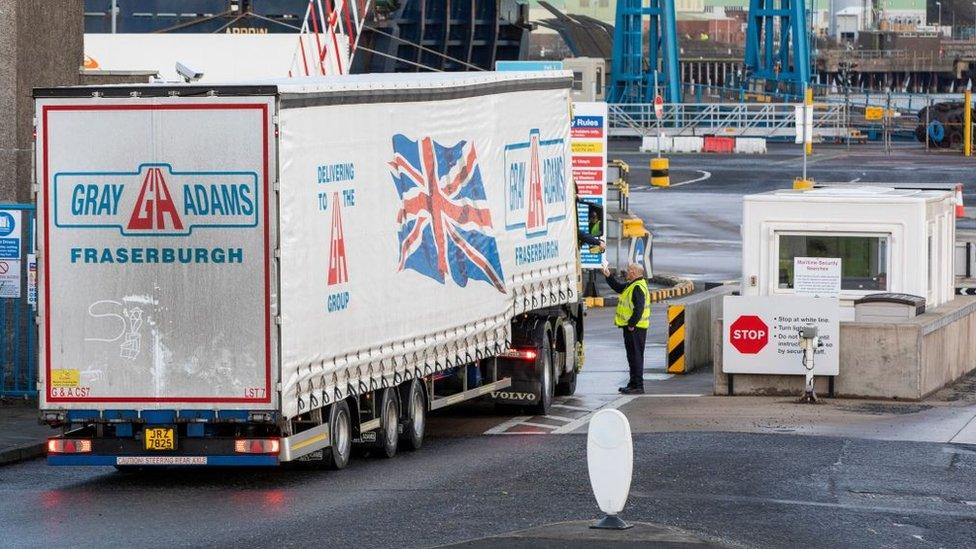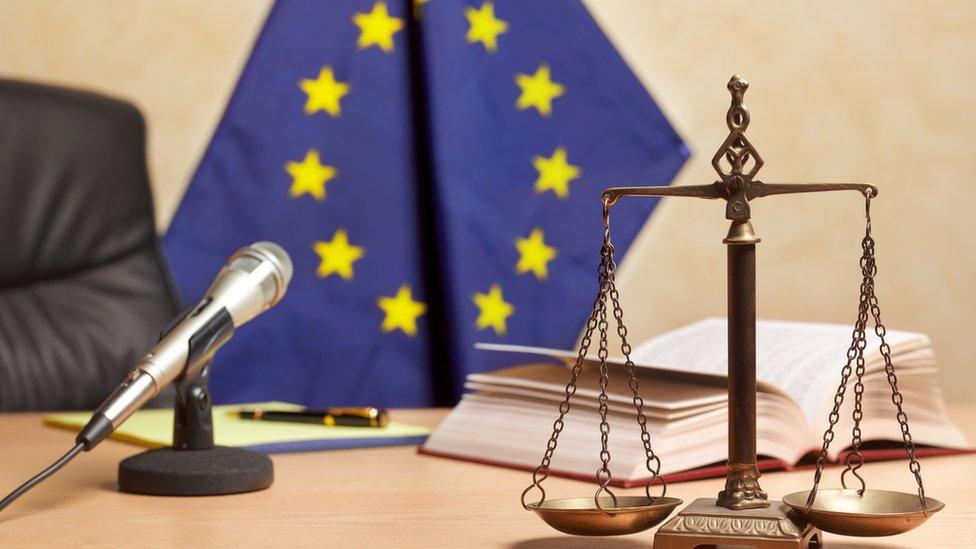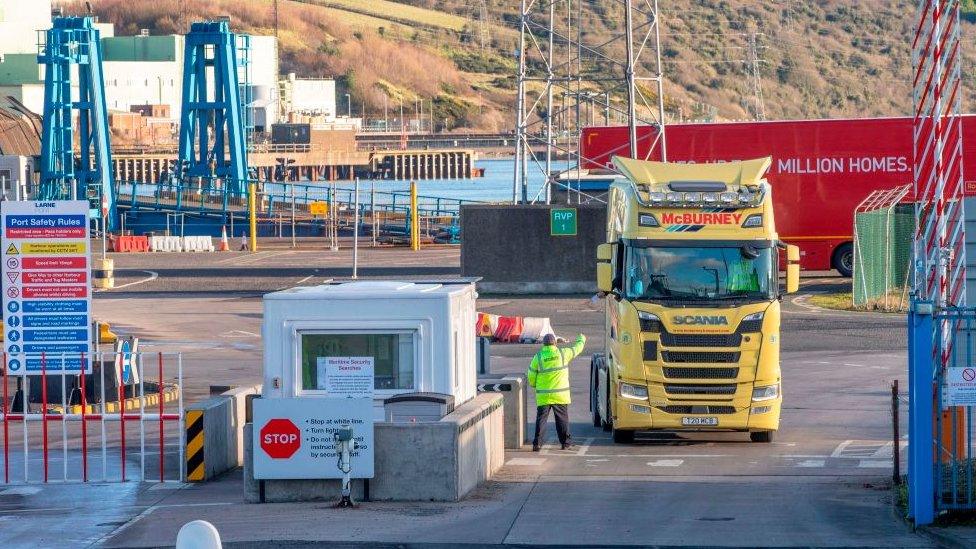Brexit: 'More needed to explain impact of EU law on NI'
- Published
- comments

The protocol led to inspections at ports on certain goods imported into Northern Ireland from Great Britain
The UK and EU need to do more to explain how updates to EU law could impact Northern Ireland, a House of Lords committee has warned.
A significant amount of EU law continues to apply in NI under the terms of the Protocol.
That body of law is subject to constant technical update and revision.
The Lords sub-committee on the protocol says "far too much government documentation inadequately explains the implications of EU legislation for NI".
The protocol is the Brexit deal that prevents a hard Irish border by keeping Northern Ireland inside the EU's single market for goods.
That means many EU laws on product standards, customs, VAT and state aid continue to apply in Northern Ireland.
If the EU is bringing forward entirely new laws which will affect Northern Ireland there is a formal consultation process with the UK government, through the oversight body known as the Joint Committee.
However, if the EU is amending or replacing existing laws they automatically apply in Northern Ireland - what is known as "dynamic regulatory alignment".
In those cases, the scrutiny process is based on the UK government producing explanatory memoranda, external (EM).
'Extremely poor'
The Lords sub-committee uses these EMs to decide which issues need detailed analysis.
It says these EMs are of inconsistent quality, describing some as "extremely poor".
It praises the Department for Environment, Food and Rural Affairs (Defra) for the quality of its submissions.
However it adds: "Too many documents from other departments do not contain sufficient information about the implications of EU legislation for Northern Ireland."
The committee suggests the ongoing negotiations on the protocol are being used as an excuse to provide minimal information.
"Notwithstanding the ongoing discussions... the government has an obligation, in the meantime, to set out the full implications of EU legislation applying to Northern Ireland under the protocol as it currently operates," it says.
The committee also tackles the wider issue of the protocol's "democratic deficit".
That refers to the fact that the EU laws which continue to apply in Northern Ireland are not subject to any consent from parliamentarians either at Westminster or Stormont.
In October, the EU published proposals aimed at enhancing consultation with Northern Ireland business and civic groups.
It also said it is planning a website showing EU legislation applicable to Northern Ireland, which could include information on pending public consultations for relevant measures.
'Particular needs'
The committee says these measures are welcome "as far as they go" but the EU needs to do more.
It suggests a number of ideas, such as providing a means for the Northern Ireland Assembly to express a collective view or decision on EU legislation.

If the EU is amending or replacing existing laws they automatically apply in Northern Ireland
That could take the form of pre-legislative consultation or a Legislative Consent Mechanism - a non-binding Stormont vote.
The EU is likely to be resistant to measures which would give Stormont greater rights than EEA countries - they are non-EU single market participants like Norway.
However, the committee's chairman, Lord Jay of Ewelme, told the BBC that Northern Ireland's situation was not comparable with the EEA and "there does need to be something which takes account of the particular needs of Northern Ireland at a very sensitive time".
Related topics
- Published8 March 2022

- Published2 February 2024
